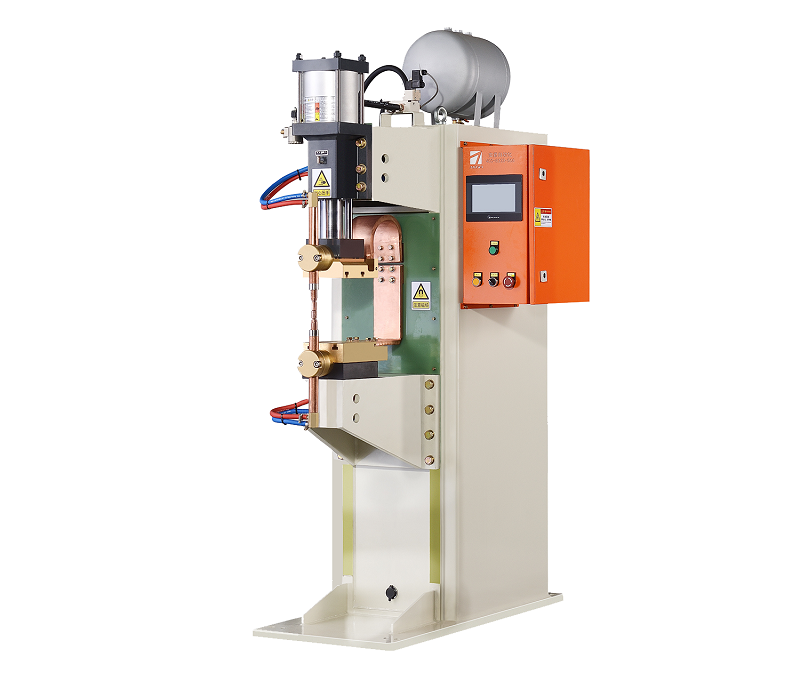Electrodes play a critical role in medium-frequency inverter spot welding machines. The selection of electrode materials is crucial for achieving high-quality welds and ensuring the longevity of the welding equipment. This article discusses the factors to consider when choosing electrode materials for medium-frequency inverter spot welding machines and provides guidance on their maintenance.

- Material Selection: The choice of electrode material depends on several factors, including the type of workpiece, welding current, welding environment, and desired weld quality. Commonly used electrode materials include:
a. Copper Electrodes: Copper is widely used due to its excellent thermal conductivity, high electrical conductivity, and good resistance to wear and deformation. It is suitable for general-purpose welding applications.
b. Copper-Chromium-Zirconium (CuCrZr) Electrodes: CuCrZr electrodes offer improved resistance to thermal and electrical wear, making them suitable for high-temperature welding and high-current applications.
c. Refractory Electrodes: Refractory materials such as tungsten, molybdenum, and their alloys are preferred for welding high-strength steels, stainless steels, and other materials with high melting points.
- Maintenance: Proper maintenance of electrodes is essential to ensure their performance and longevity. Here are some maintenance tips:
a. Regular Cleaning: Remove any debris, weld spatter, or oxides from the electrode surfaces to maintain good electrical contact. Use appropriate cleaning tools and solvents as recommended by the electrode manufacturer.
b. Electrode Dressing: Periodically dress the electrode tips to maintain their shape and surface quality. This process involves grinding or machining the electrode tip to remove any worn or damaged areas and restore the desired geometry.
c. Cooling: Ensure proper cooling of electrodes during welding operations, especially when using high currents or in continuous welding applications. Excessive heat can lead to electrode degradation and reduced weld quality.
d. Insulation: Insulate the electrode holders and ensure proper insulation between the electrode and the welding machine to prevent electrical leakage and improve safety.
e. Monitoring: Regularly inspect electrodes for signs of wear, damage, or deformations. Replace worn or damaged electrodes promptly to maintain optimal weld quality.
The selection of electrode materials in medium-frequency inverter spot welding machines should consider factors such as workpiece materials, welding conditions, and desired weld quality. Proper maintenance practices, including cleaning, dressing, cooling, insulation, and monitoring, are essential to ensure the longevity and performance of electrodes. By selecting suitable electrode materials and implementing effective maintenance routines, welders can achieve consistent and high-quality welds in various welding applications.
Post time: Jul-06-2023


